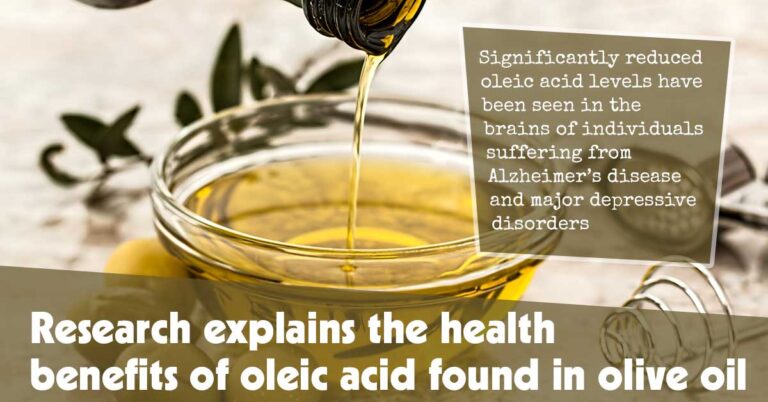Study Unveils the Health Advantages of Oleic Acid Present in Olive Oil
Oleic acid, one of the main components of olive oil, contains properties which help in protecting against Alzheimer’s disease and cancer while simultaneously lowering cholesterol.
Olive oil’s health benefits, generally attributable to minor components like polyphenols, have long been acknowledged. Yet little attention has been paid to oleic acid’s contribution – accounting for between 70-84% of olive oil’s composition – so researchers conducted a detailed examination on its primary health impacts.
Olive oil’s primary component, oleic acid, has many health-promoting attributes and can be found both in our diets and bodies; our bodies also synthesize it directly. Oleic acid is one of the most abundant monounsaturated fatty acids (MUFAs) found in food sources.
The Mediterranean diet is widely recognized for preventing both aging and disease. Olives are widely found throughout this region, and olive oil extracted from them forms the mainstay of its diet – serving as its main fat and most popular nutrient. Furthermore, its key elements include high vegetable consumption, moderate fish intake, low dairy intake, minimal red meat consumption, moderate wine intake and moderate intake overall.
Oleic acid is the main MUFA found in circulation and a major constituent of membrane phospholipids in the brain and myelin sheaths of neurons, with significantly decreased levels being seen among individuals suffering from Alzheimer’s disease or major depressive disorders.
As with other free fatty acids, oleic acid serves as both an energy molecule and cell membrane constituent. One of its key characteristics is its antioxidant effects; specifically its ability to directly regulate antioxidant enzyme activity and synthesis. Furthermore, its hypocholesterolaemic effect involves inhibiting protein expression related to cholesterol transport which decreases absorption levels thus helping prevent atherosclerosis.
Oleic acid has long been recognized for its anti-cancer capabilities due to its effect of inhibiting oncogene overexpression and programmed cell death. Furthermore, researchers still debate its anti-inflammatory qualities.
An oleic acid derivative called Oleoylethanolamide possesses potency antioxidant and anti-inflammatory effects and may serve as an effective therapy against obesity.
Recent research indicates that it could influence epigenetic mechanisms (direct DNA modifications and proteins associated with DNA), as well as immune system modulation by controlling cells associated with inflammation.
